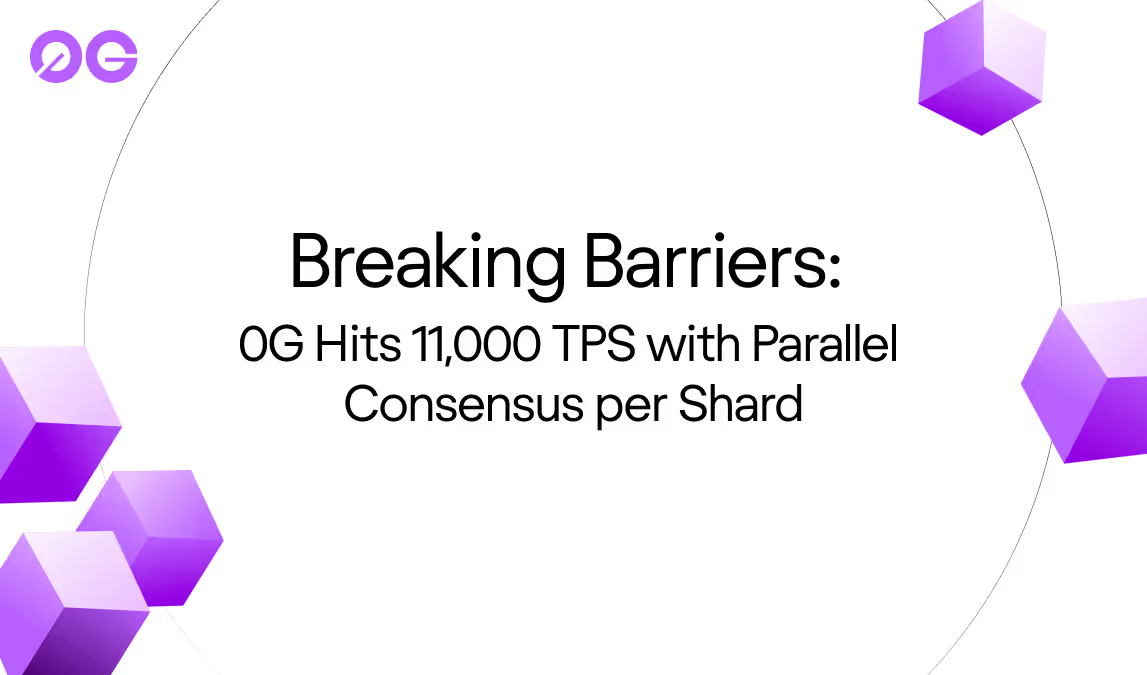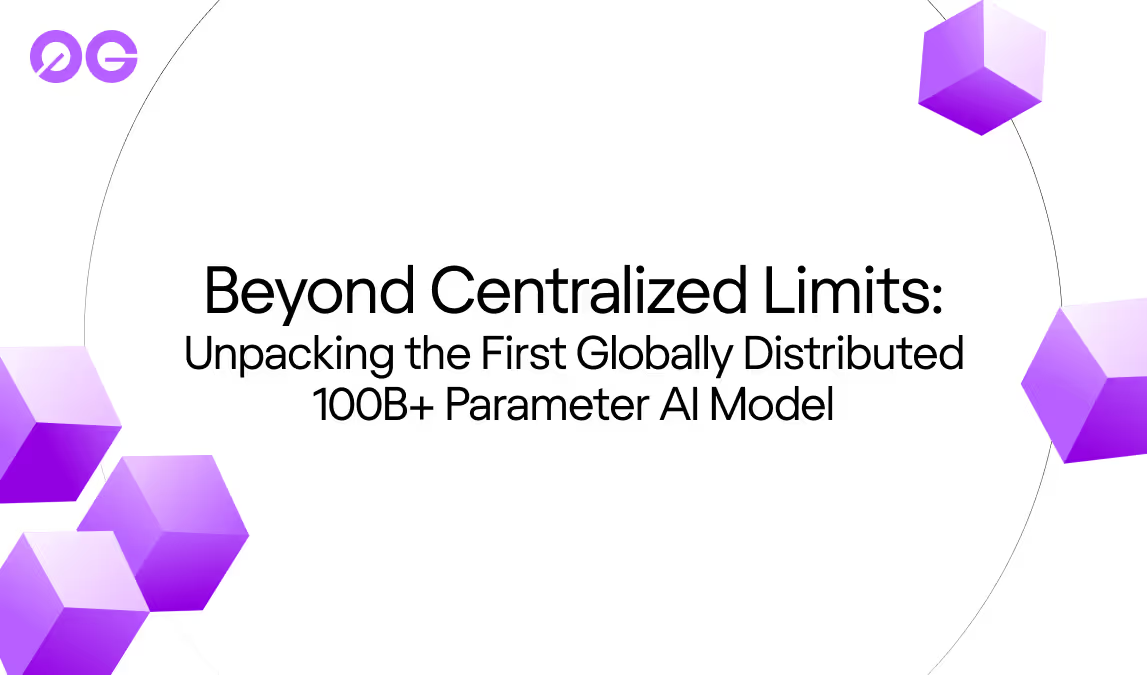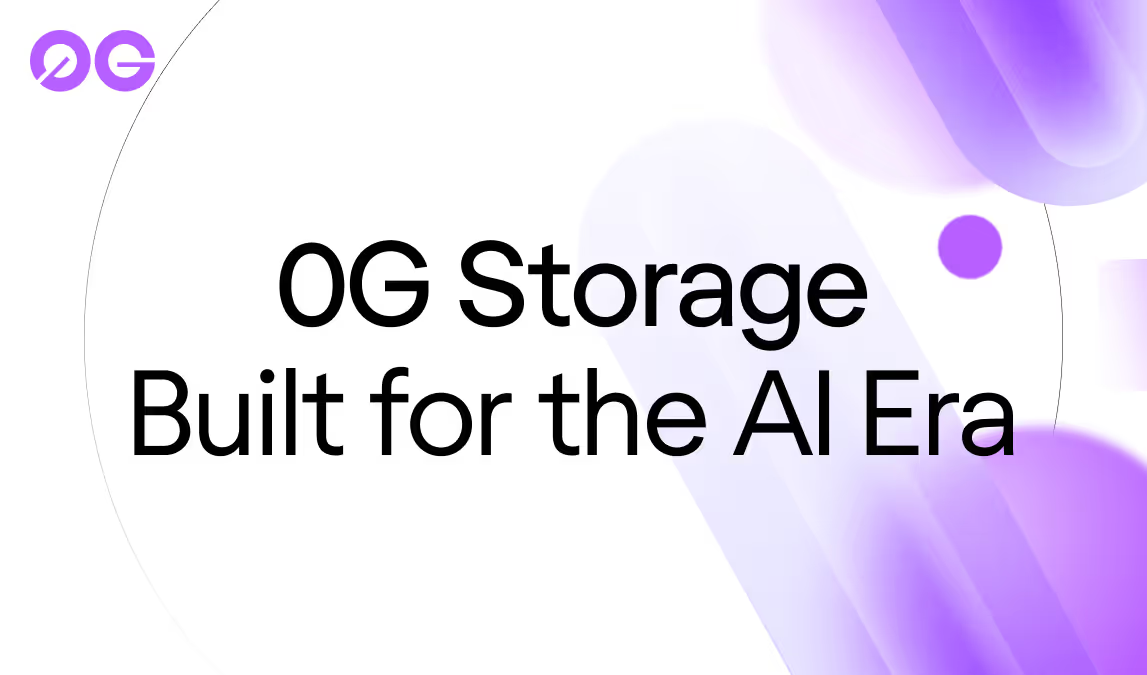

This Week in Onchain AI - Ep.2 Recap
Today, we hosted the second episode of This Week in Onchain AI—0G’s new X Space series, where we dive deep into the world of Decentralized AI (DeAI) with leading builders and thinkers.
Back again were hosts Jax Dwyer and Elisha Owusu Akyaw, joined this week by Vitalis Elkins, Head of Europe at ByteTrade and co-founder of Mindscraft, a no-code platform for building intelligent agents.
The conversation spanned decentralized infrastructure, the evolving role of AI agents, and how open source intersects (and often conflicts) with decentralization.
Here’s a recap of the biggest takeaways:
Chatbots to Smart Agents: The New Paradigm of AI
To start things off, Vitalis shared the origin story of Mindscraft, born from his team's frustration with the limited functionality of existing agent platforms. Early experiments like Schizo Terminal—a “schizophrenic” AI exploring split personalities—evolved into a broader vision: giving users the ability to create personalized agents without any coding or prompt engineering.
Vitalis: “It was a very simple idea: allow people to create meaningful agents without knowing coding or even prompting… just using key interfaces like toggle lists and checkboxes.”
To Vitalis, the future of AI is one where users build agents as easily as they install apps. But beyond consumer use, he noted that B2B is where the near-term opportunity lies: replacing high-churn roles like moderators and support staff with more scalable, intelligent agents.
Decentralized AI Still Isn’t Obvious
After a brief discussion about Vitalis’s ventures (and Jax’s avid use of LLMs), the conversation shifted as Elisha recounted a recent exchange with a friend at MIT. The friend asked why he was building decentralized AI—a question that still surprises Elisha, given how deeply embedded centralized models like ChatGPT have become in daily life.
Our speakers broke it down simply: users are feeding private data into opaque black boxes. Whether it’s personal chats, health data, or business strategy, we’re giving massive corporations control over highly sensitive information with little transparency and no guarantee of alignment with user values.
Elisha: “For far too long, we've trusted big tech companies to manage our data, protect our privacy, and provide us with information. All of these three things are very important to our existence, our ability to take the right decisions, and just have our own free will and be able to do whatever it is that we want. And I think people don't seem to get that.”
Vitalis added that while many users may not care (yet), there’s clear demand in the enterprise space. Companies don’t want to feed their IP into a competitor’s model, and DeAI offers a way to preserve privacy without sacrificing performance.
Open Source ≠ Decentralized
A recurring theme in the conversation was the confusion between open source and decentralized AI. While models like Meta’s Llama and DeepSeek are technically open source, they’re still produced by major corporations—often with centralized control over training data, deployment, and governance.
Jax: “Even when we look at the open source models, they’re created by Facebook. Like Llama, Facebook. DeepSeek, a hedge fund in China… All of these are still being produced by commercial enterprises.”
Elisha expanded on this point, emphasizing that decentralization isn’t just about publishing code; it’s about who controls the infrastructure, how data is stored, and who decides what gets prioritized.
Elisha: “You can be open source and not decentralized… but decentralized platforms will pick up these pieces of code from people who are publishing as open source and adapt them to public infrastructure.”
In that future, open models can evolve in transparent, community-driven ways, building toward a more robust and perhaps even censorship-resistant AI ecosystem.
The Agentic Future Is Closer Than We Think
As the conversation turned back to AI agents, all three speakers shared a clear vision for where things are heading: a shift from apps to agents. Top of mind was how the way we interact with software could soon look radically different.
Jax: “We may actually see the death of the app future and the introduction of the agent future… In the agentic future, maybe you just have one really close personal assistant agent, and it would work to coordinate all of these specialized sub-agents.”
Elisha emphasized that we’re not just talking about convenience but about critical infrastructure for filtering information and improving decision-making. He gave the example of recent fake news impacting financial markets:
Elisha: “On Monday, when the stock market opened and the prices were dumping, some accounts and news platforms claimed that Trump is about to put a halt on the tariffs. That news stayed in circulation for a good two hours before people from the White House could clarify that they don't know anything about a pause. People went long based on that news, and they quickly got liquidated. It was a very sad situation and also very interesting in terms of how people interact with news… Having an AI agent that verifies news, explains context—this is not just a crypto-specific use case, it’s for everyone.”
Vitalis added that the agentic future will be defined by natural interactions and seamless personalization, moving far beyond today's prompt-heavy experiences:
Vitalis: “Right now, you need to understand how to speak with ChatGPT. People who know how to communicate with LLMs have a big advantage. But I think it will be completely neglected in a few years. It’ll be turned into a fully natural language, and agents will understand you the way people do.”
The takeaway? Agents aren’t just a trend—they’re the next major UX shift. Decentralized infrastructure will be critical to making them trustworthy, composable, and privacy-preserving.
0G Milestones
To close out, Elisha highlighted several exciting developments from the 0G ecosystem:
- Keep an eye on puzzle drops from the 0G X account—something’s brewing.
- 0G will be present at Token2049 (more details soon).
- Testnet V3 is on the way, accelerating the road to mainnet.
Join the Conversation
Missed the space? Listen to the full recording here, and be sure to follow 0G on X for future episodes.
Join our Discord to keep up with DeAI conversations, builder updates, and upcoming community activations.






